
Pakistan on World Health Organization 1968
Complete set of 2 nos. of commemorative postage stamp on the 20th Anniversary of WHO (World Health Organisation) :
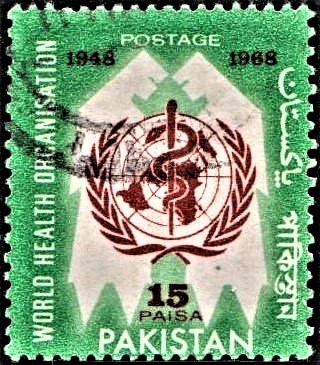
 Issued by Pakistan
Issued by Pakistan
Issued on Apr 7, 1968
Issued for : During its thirty-ninth session – seventeenth meeting, January 26, 1987 – the Executive Board of the World Health Organisation decided to celebrate the whole of 1968 as the twentieth anniversary of the Organization. Pakistan, along with a number of other countries, is issuing two postage stamps of 15 Paisa and 50 Paisa denominations on April 7, 1968 to commemorate the occasion.
Design : The format of the stamp is rectangular. The emblem of the “World Health Organization” is shown in the centre. Two images of doctors in abstract form in silhouette are shown in reverse. The background in respect of 15 Paisa postage stamp is green and orange in respect of 50 Paisa postage stamp which is bleeding upto perforation. The wording “World Health Organization” appears vertically on the left side of the stamp. “Pakistan” in Urdu and Bengali is printed vertically on the right side whereas the word “Postage” is printed on top and “Pakistan” at bottom in English. The year 1948 and 1968 appear on either side of figures on top left and right. The denomination is just below the emblem in between the legs of silhouetted forms.
Type : Stamps, Postal Used
Denomination : 15 & 50 Paisa
Colour :
15 Paisa : Green and Red
50 Paisa : Orange and Blue
Size of Stamps : 26 x 30 mm
Size of Prints : 26 x 30 mm
Perforation Gauge : 12½ x 14 (c)
Quantity Printed :
15 Paisa : 15,00,000
50 Paisa : 10,00,000
Number of Stamps in each sheet : 50
Process of Printing : Two colour photogravure
Printers : The Pakistan Security Printing Corporation Ltd., Karachi
About :
- Defining health as “a state of complete physical, mental and social well being,” the WHO Constitution states that The objective of the World Health Organization is the attainment by all people of the highest possible level of health. The functions of WHO are :
- 1. To act as the directing and co-ordinating authority on international health work.
- 2. To propose conventions, agreements and regulations and make recommendations concerning international health matters.
- 3. To develop, establish and promote international standards for food, biological, pharmaceutical and similar products.
- 4. To promote Co-operation among scientific and professional groups which contribute to the advancement of health.
- 5. To promote and conduct research in health.
- 6. To study and report on public health and medical care from preventive and curative points of view, including hospital services and social security.
- 7. To assist governments, upon request, in strengthening health services.
- 8. To promote maternal and child health and welfare and to foster the ability to live harmoniously in a changing environment.
- 9. To stimulate and advance work to eradicate epidemic, endemic and other diseases.
- 10. To standardize diagnostic procedures as necessary.
- 11. To promote the improvement of nutrition, housing-sanitation, recreation, economic or working conditions and other aspects of environmental hygiene.
- 12. To promote the prevention of accidental injuries.
- 13. To foster activities in mental health, especially those affecting human relations.
- 14. To promote improved standards of teaching and training in health, medical and related professions.
- Delegates of WHO’s 127 Member States and Associate Members (countries not responsible for their external affairs) met annually, usually in Geneva. The Assembly establishes policy and decides on the programme and budget for the following year.
- For WHO purposes the world is divided into its regions, each with its own organization – a regional committee composed of delegates from governments in the region and a regional office that administers WHO-aided projects and supervises staff in country projects. More than 12,000 scientists, health administrators and educators of many nations are members of 44 WHO standing expert panels whose advice is sought on matters in their field.
- Since 1955, WHO has been engaged in the greatest public health venture the world has ever known; the eradication of malaria. The disease still causes more deaths than any other, as well as inestimable human distress and economic loss. Eradication is proceeding in the great majority of the world’s still malarious countries.
- Every year tens of thousands of people still get smallpox although vaccination has been known for 150 years. In 1965, there were 59,608 cases in the world and 1,735 deaths. Eradication is one of WHO’s objectives and in 1966 the Assembly decided to make an all out attack to eliminate the disease. A 10-year campaign began in 1967. 220 million vaccinations are planned for the first year. The cost to WHO – $2,514,000.
- Lack of doctors, nurses, sanitarians and trained workers of all kinds constitutes the greatest single obstacle to improving the world’s health. WHO encourages the creation of teaching institutions and provides consultants and key staff, calls expert committees and publishes reports on training of health personnel and organises educational meetings and courses. It facilitates advanced studies abroad by awarding about 3,000 fellowships a year.
- Water-borne infections include diarrhoea, dysentery, typhoid, cholera. Less than 10 per cent of the people in the developing areas of the world are supplied with safe water in sufficient quantities. WHO helps develop new water systems, recommends water standards, trains engineers, chemists, bacteriologists. WHO also fights air, soil and water pollution.
- WHO is studying and co-ordinating research on the medical aspects of sterility and fecundity and on population dynamics as they affect health. WHO’s role in this field, as defined by the World Health Assembly in 1966, as “to give Member States, upon request, technical advice in the development of activities in family planning, as part of an organised health service, without impairing its normal preventive and curative functions”.
- WHO is helping countries to solve many health problems. The main objective is to build up the national potential and train personnel so that eventually outside help will no longer be needed. Regional offices are responsible for planning and operating country projects, while technical staff at Headquarters is ready to advice and help. The process starts with a request from a government for WHO, to investigate a problem that cannot be solved with local resources. Discussions follow between the national health authorities and the WHO regional office and a plan of operations is drawn up.
- Issued by The Director-General, Pakistan Post Office, Karachi.


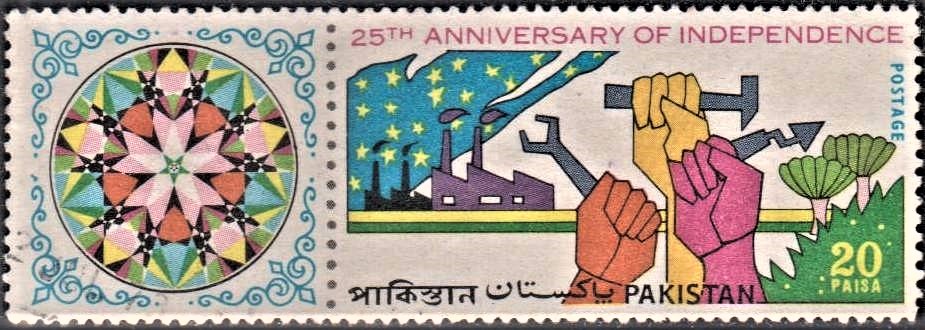
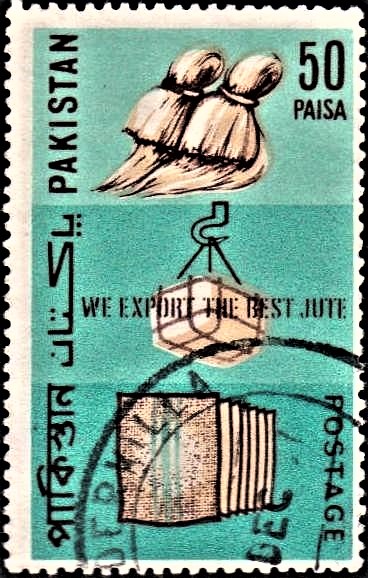
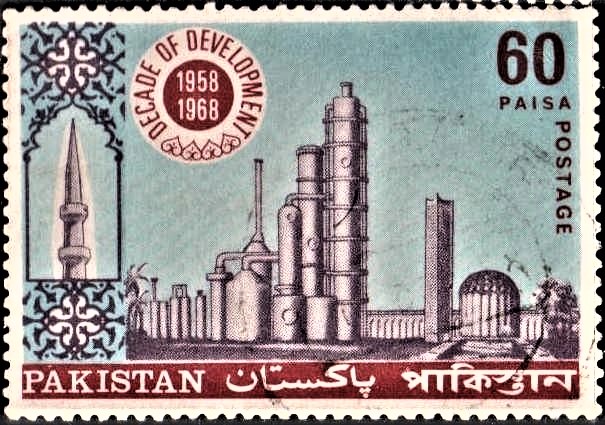
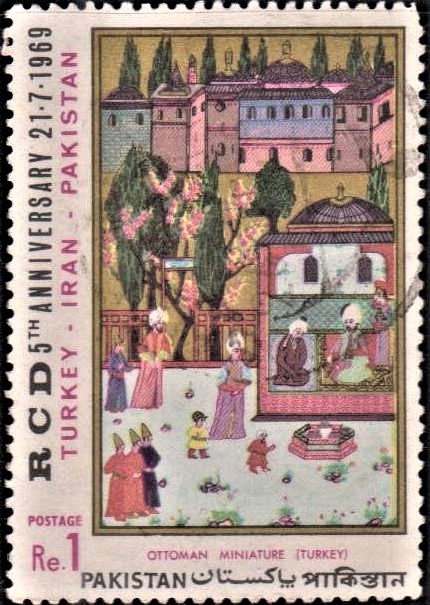
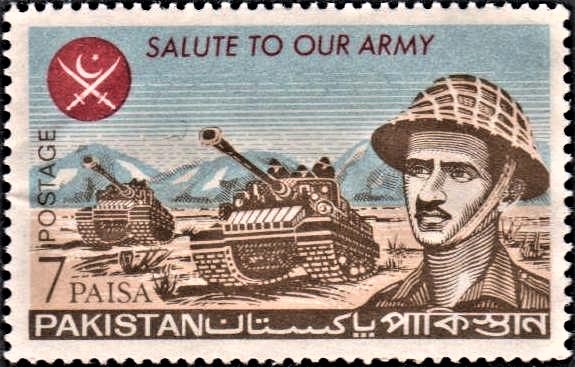
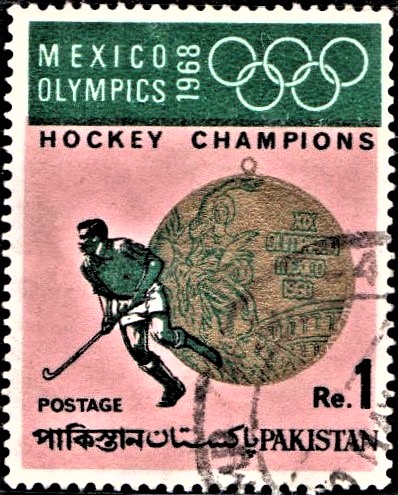
[…] the recommendation of the International League against Rheumatism (ILAR) the World Health Organisation have nominated 1977 as the World Rheumatism Year. The objective of the year is to promote a […]
[…] Planned Parenthood Federation (IPPF) and co-sponsored by the World Bank, the UNDP, UNFPA, UNICEF, WHO, the Population Council and Family Care International, PAASBAN, the Family Planning Association of […]
[…] stamps of 10 and 13 Paisa values is being issued on the 7th April, 1962, the date fixed by the World Health Organization in connection with their global programme for the eradication of malaria. These stamps will be on […]
[…] appears the word ‘Pakistan‘ in English and Urdu at the top in blue colour. The W.H.O. emblem appears in the centre of the panel in green, yellow and black colour, while the denomination […]
[…] and W.H.O. have been active in protecting children against malaria, tuberculosis, trachoma, and leprosy. […]
[…] The International Leprosy Association, being on various committees of the WHO and allied health agencies, advises these agencies on leprosy control […]
[…] Over 75 National Neurological Associations representing various countries elect the office bearers to form the World Federation of Neurology. The World Federation is a non-political scientific body affiliated with the World Health Organisation. […]
[…] quote Dr. M.G. Candau, Director General of World Health Organization, “in man’s endless struggle for a healthier life, to free the world from the ancient […]
[…] the world. It marks the anniversary of the coming into being of the Constitution of the World Health Organisation in 1948. The theme chosen for the observance of the Day in 1976 is ‘Foresight Prevents […]
[…] is recognised and practised in most countries of the world and strongly advocated by the World Health Organization and other international agencies and the objective is that India should also switch over to the […]
[…] World Health Organization (WHO) declared a ‘Public Health Emergency of International Concern’ on 30th January, 2020 owing to […]
[…] leprosy patients, and at the same time the principle of domiciliary treatment (as advocated by the World Health Organisation) became generally […]
[…] was declared a pandemic by the World Health Organization (WHO) in March 2020. Since then, the disease has caused significant morbidity and mortality across the […]
[…] Development (CHAD) programme, which has recently been commended by the World Health Organisation (WHO) as the best Primary Health Care programme in India. The Rural Unit for Health and Social Affairs […]
[…] virus diseases–19. The virus was first identified in December 2019 in Wuhan, China. The World Health Organization declared a Public Health Emergency of International Concern regarding COVID-19 on January 30, 2020 […]